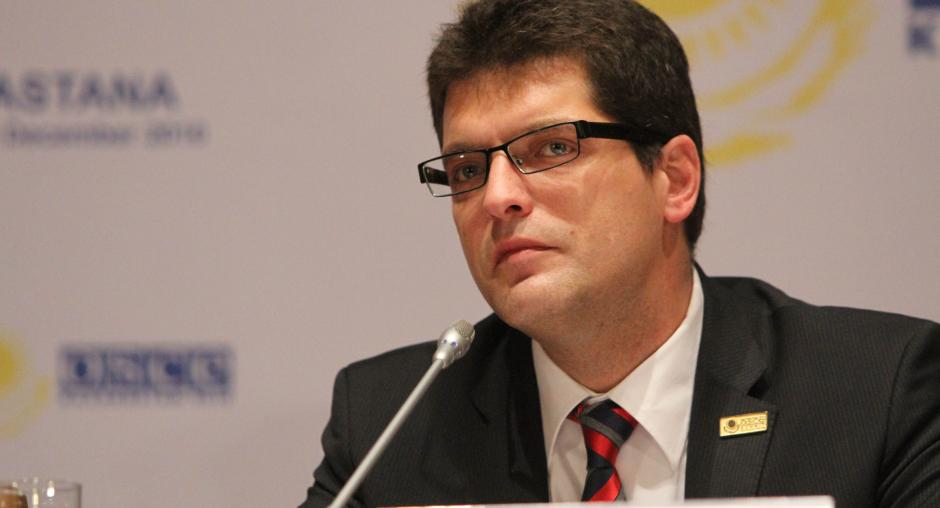OSCE rights chief welcomes decision to release Zhovtis, but expresses concern about clampdown on Kazakh opposition

WARSAW, 1 February 2012 – Ambassador Janez Lenarčič, the Director of the OSCE Office for Democratic Institutions and Human Rights (ODIHR), today welcomed the decision by a court in Ust-Kamenogorsk to release prominent human rights defender Yevgeniy Zhovtis, but expressed concern about the continuing clampdown on opposition activities in Kazakhstan in the wake of December’s violence in Zhanaozen and parliamentary elections held earlier this month.
“The decision to release Zhovtis is a positive step. But we are worried about the further tightening of the already substantial restrictions on fundamental freedoms that marked the recent parliamentary elections in Kazakhstan,” Lenarčič said. He called on the authorities to allow the country’s opposition to play its rightful role in a democratic society and ensure full respect for human rights and fundamental freedoms, including the freedoms of expression, association and peaceful assembly.
Lenarčič also urged the authorities to conduct full, transparent and independent investigations into the Zhanaozen events and allegations of irregularities during the recent parliamentary elections.
Three leaders of the opposition All-National Social-Democratic Party “Azat” – Bulat Abilov, Amirzhan Kosanov and Amirbek Togusov – were detained and convicted to 15 days of administrative arrest following a peaceful rally held on 28 January in Almaty to protest against the election process and results. Earlier that week, law enforcement officers raided the office of the unregistered opposition party “Alga!” and arrested its leader, Vladimir Kozlov, on criminal charges for inciting social discord, and the editor-in-chief of the independent Vzglyad newspaper, Igor Vinyavski, for calling for the forcible overthrow of the constitutional order, in ostensible connection with the Zhanaozen events.
“These actions run counter the government’s often-stated commitment to open up democratic space and strengthen respect for human rights,” Lenarčič said.
He emphasized that President Nursultan Nazarbayev reconfirmed Kazakhstan’s commitment to the OSCE’s democracy and human rights standards at the OSCE Summit in Astana in 2010, and stressed the “important role played by civil society and free media” in helping to ensure “full respect for human rights, fundamental freedoms, democracy, including free and fair elections, and the rule of law”.
In a statement issued on 25 January, the OSCE Representative on the Freedom of the Media, Dunja Mijatović, called for the release of Vzglyad editor Vinyavski and urged the authorities to allow independent media work freely.
ODIHR observed the 15 January parliamentary elections and concluded that the process did not meet fundamental democratic principles, noting restrictions on pluralism and fundamental freedoms, as well as irregularities on election day.
Zhovtis, a member of the ODIHR Panel of Experts on Freedom of Peaceful Assembly, was convicted in September 2009 to four years in prison for his involvement in a car accident that led to the death of a pedestrian. ODIHR and a number of other international human rights organizations raised strong concerns at the time over violations of fair trial standards, as set out in OSCE commitments and international human rights law.
